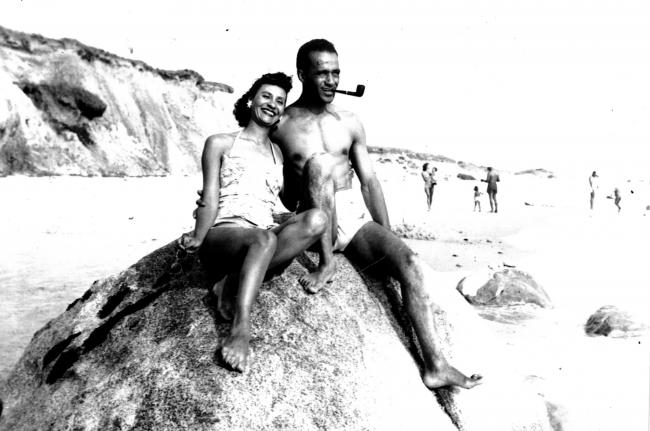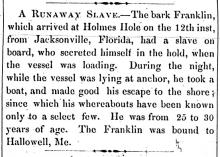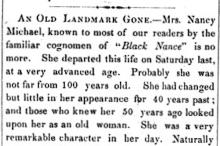A man and woman charged recently with sleeping in Ocean Park, a violation of Oak Bluffs law, came before the Dukes county district court judge Herbert E. Tucker, Jr. and were ordered to pay a $25 fine. They told Judge Tucker they needed until 1 p.m. that afternoon to pay.
At 1 p.m., the couple did not appear. They had gone home to Fairhaven.
Several days later, two Oak Bluffs policemen appeared at their door with a warrant from Judge Tucker ordering the couple to appear in court to pay the fine, plus the costs of sending two officers to Fairhaven.
“I told her this court trusted you, and by your action in leaving you showed a contemptuous attitude toward the justice system,” Judge Tucker recalls. “She seemed very repentant.”
After a year presiding over the Island’s weekly court sessions and living in Oak Bluffs, Judge Tucker has established a reputation as a man with a deep regard for the law, a scrupulous concern for the process of justice, and little tolerance for those who do not share those principles. He took a court accustomed to beginning its Friday business at around 10:30 a.m. and made it come to order precisely at 9 a.m. Police officers in the habit of staying around the court on overtime were told to stop using up their towns’ money that way.
Defendants have found that Judge Tucker runs a no-nonsense court that has doubled the money collected in fines this year while the case load was increasing 68 per cent. Those who try to duck the court’s judgments have discovered, like the Fairhaven couple, that Judge Tucker will go to great lengths to punish contempt of court, and make the scofflaws pay the expense.
At the same time, Judge Tucker has thrown out charges that were sloppily prosecuted, even when a defense lawyer failed to catch a technical error in the case himself.
In an interview last week in his chambers at the court house, Judge Tucker talked about his court and the changes the Vineyard’s growth has brought to it. Dressed in his black judge’s robe, and occasionally lighting his pipe, he struck a dignified and reflective tone leavened by his amusement at some of the demands of his job such as the 3 a.m. phone calls he now receives from irate, freshly arrested residents.
One of Judge Tucker’s top priorities is getting approval from Samuel Zoll, the chief justice of the district courts, for two daily sessions each on the Vineyard year-round. The need for increased court time is indicative of the increased court business that has accompanied the growth of the Island population, Judge Tucker says.
“This is looked upon as resort area,” he says, “and wherever I go for [judicial conferences] they all say ‘You’re in God’s country, you’re in heaven.’ That may be. . . But at the same time, it’s not only a resort community, it’s a growing community, and growing rapidly.
“At one time down here the most serious crime would be breaking and entering. Many times that was some kids who would take advantage of someone whose home was vacant for the winter. But now we have a case the other day of arson, and escape [from the county jail]. We never had that.”
As the case load has increased in sheer numbers, the traditional once-weekly court session in the off-season has been strained, Judge Tucker says. Court sessions are running all day, to the inconvenience of all parties. This summer, the traditional switch to a five-day court week was pushed 10 days earlier into June, and still the case load is heavy.
Judge Tucker says he hopes the fact that he has collected enough in revenue to almost equal the cost of an extra court day year round will convince his superiors to grant the extra day. The doubling of fine revenues is in part due to a 68 per cent increase in cases, “but I would say my style has made some contribution to it,” Judge Tucker says.
After seven years as a district court judge in Dorchester, where he dealt with “one murder a day and two or three armed robberies,” Judge Tucker says he still finds the Island a tranquil place. Most of the offenses that bring people to the Edgartown court affect only small numbers of people, many are personal disputes, and there are a few truly vicious crimes such as rape, murder, armed robbery, Judge Tucker says.
As much as 80 per cent of the people who wind up in district court are there, directly or indirectly, because of drinking too much, he says.
Judge Tucker occasionally warns defendants in open court about the dangers of excessive drinking, and says he tries to convince those who are convicted of alcohol related offenses to seek counseling through Alcoholics Anonymous or other programs.
“Alcohol affects people in many ways,” he says. “It makes happy go lucky fools out of some, and some become dangerous and violent, taking out all their venom on everybody and everything they see.
“We try to point that out to people in the programs we send them to, and the dangers, particularly in the operation of a motor vehicle . . . On the other hand, if someone does a certain thing, we have to impose a certain punishment, because drunkenness is no excuse.”
One of Judge Tucker’s characteristic warnings to an uncooperative defendant is that he will be forced to “deprive you of your freedom.”
But like many jurists, Judge Tucker is unsure of the value of jailing an offender.
“I’m not sure whether jail is a deterrent for other people. But I know that an individual, himself, thinking about going to jail may think twice about what he’s going to do,” he says.
Judge Tucker says that in the future he will establish a program where those convicted of offenses can work off their fines or restitution costs by serving the towns or county. He is trying to work out the details to establish a work program now.
“In Boston, we had 80 or 90 people on the program, here we probably wouldn’t have more than four or five people, but it’s still a saving,” he says. “If someone on the program is picking up paper at the airport, the county doesn’t have to pay someone $3.50 an hour to do it.”
In addition, Judge Tucker would like to establish a process of mediation to handle minor civil disputes between neighbors and relatives that would take such matters out of the courts.
In a place where so many people stay only for a week or weekend, people convicted of relatively minor offenses often simply leave the Island and with it, they may believe, their court obligations.
“I think that what’s happened here is that many people have been violating the law thinking that nothing is going to happen to them,” Judge Tucker says.
But as the story of the young Fairhaven couple illustrates, the Dukes County district court will be tenacious in its pursuit of even $25.
“Visitors should realize they can’t come around here and park in somebody’s parking space, or speed or violate our laws and say ‘Don’t worry, they’re never going to get us,’ “ says the judge.
Judge Tucker says he will send officers to fetch any in-state scofflaw, and that visitors who do run afoul of the court should think,” ‘We don’t want to go home to Belmont and have someone pulling us out of bed at three o’clock in the morning.’ But that’s what’s going to happen.”
Consistent with his firmness in dealing with defendants, Judge Tucker is demanding of the police, defense attorneys, and prosecutors. He sets the tone of his court by his punctuality: “I come in at 8:30 in the morning, and when the Clock is striking 9 out there I’m walking in the courtroom.”
Of the police, Judge Tucker says: “Our relationship is better than I expected it to be.”
The qualification is a reference to his decision not to allow police officers to collect overtime pay for appearing in court to handle arraignments and pretrial conferences. Arresting officers now come to court for trials only, and town police chiefs handle other procedures. Officers receive less overtime pay because of the policy, but they also get clear days off, and the towns save money.
“I said to them because of Proposition 2½, the budget will be cut down and it may result in one or two jobs being lost. So you don’t have to use the budget up in overtime, at least we can save there and have the number of police we should have,” Judge Tucker says.
Police say they do miss the pay, but don’t mind the days off, and recognize the logic of cutting costs in the era of limited town revenues.
Balancing the order that reduced police overtime was another that freed police from the responsibility of chasing down and prosecuting people who bounce checks to merchants. “They’re not going to be collection agents for shopkeepers,” he says. Another well-received move by Judge Tucker secured parking spaces in front of the court to spare officers and prisoners a two-block walk up Main street in Edgartown when going to court.
Of Island police, in general, Judge Tucker is complimentary. “It’s not their interest to persecute, rather than prosecute. I like the caliber of man here,” he says.
Overall, Judge Tucker is praised by police for his firm hand with offenders.
“I like what he’s doing,” Tisbury police chief John McCarthy says. “I find him being firm with people who are trying to get by with something. Someone who doesn’t show up to court automatically gets a $50 court costs.”
Oak Bluffs police chief Peter Williamson has praised Judge Tucker for “having his finger on the pulse of the community.”
The Island’s lawyers have found that Judge Tucker will impose court costs on lawyers who are not ready to try a case on the appointed date. He is also critical of what he views as excessive plea bargaining encouraged by the public defender system.
Because most of the crimes committed on the Island are minor, and lawyers are not paid well for representing indigent defendants, Judge Tucker says the admission of sufficient facts in return , for a pro-forma fine is overused.
Last Friday, the district attorney had complaints regarding a minor transporting a container of alcohol in his car, but he had left the words ‘open container’ out,” he says.
When the defense attorney had finished having his client admit sufficient facts to the complaint, Judge Tucker threw the case out.
“I said even though you admit it, I can’t find you guilty because if I walk down the street with a bottle of whiskey from the store, you could arrest me. You left out the word ‘open,’ “he says.
He called in both the prosecutor and the defender to his chambers after the session and said, “It’s not my purpose to embarrass you, but you should read those complaints. You should have let the government put on its case and then gotten the not guilty finding.”
After seven years in Dorchester district court, preceded by 27 years of private law practice and 16 years of splitting time between Oak Bluffs and Boston, Judge Tucker seems pleased to live year round on the Island. He admits that the closeness of personal relations in the Island community can tempt a judge not to be as objective as he should, but quickly adds that the advantages of Island life outweigh such disadvantages.
“I still believe it is a tranquil Island. There are incidents, but I don’t think you can have any perception of it as anything other than tranquil,” he says.
If it is clear that Judge Tucker prefers the kind of judgments the Island demands to those that the violence of Boston requires, it is also clear that he applies the same standards to both places. As he says when asked to compare the urban and rural courts:
“The law is the same anywhere.”










Comments